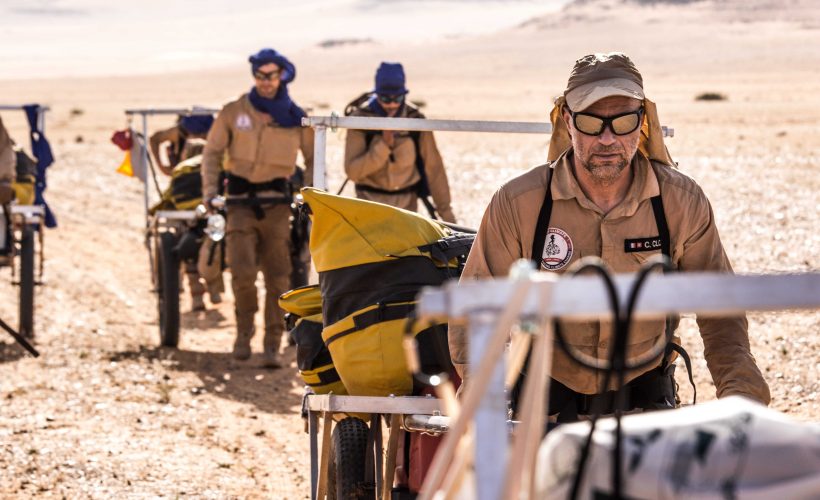Tech & Business
8.18.2020
A Lebanese start-up is shaking up the orthodontics codes with 3D

While Lebanon is going through an unprecedented economic, social and political crisis, a young entrepreneur stands out and continues to make his small business flourish, bringing orthodontics into the digital age.
For Cherif Massoud, orthodontics is a family business. Coming from a long tradition of orthodontists, Cherif always wanted to take his field further by embracing new technologies. In 2018, he launched Crystalign, a system of invisible aligners and transparent braces printed in 3D, which he offered to several practices in the Middle East. Last March, he created Basma, a complete at-home impression kit, which delivers customers with invisible aligners right to them. An accessible and affordable solution that should bring a smile on the face of his patients especially in times of pandemic where social distancing is key. An opportunity for this ambitious entrepreneur to position Basma as the tele-dentistry reference in the Middle East and North Africa.
What took you from orthodontics to entrepreneurship?
I have a lot of empathy in general, and being an orthodontist, I realized that many patients were not satisfied with existing dental alignment treatments. Having had to wear braces myself between the ages of 13 and 18, I knew very well that the solutions in place were not really optimal. On the other hand, I think that the health sector is generally too backward in Lebanon with a really bad patient experience, between long waiting time periods, as well as painful and costly treatments. Because of all these obstacles, the majority of people here end up not treating their teeth and also because they don’t see any added value. Yet, we all know that family photo where a person doesn’t smile because she is not uncomfortable with her smile. What we want to show this person is that it is not so difficult to have good dental health.
Can you introduce us to Basma and tell us a little bit about the way it started?
Until recently in the Middle East, there were only “classic” treatments, i.e. with braces, which were quite time consuming , required many trips to the dentist, and with which it was sometimes difficult to simply eat an apple. In the United States, however, transparent braces and aligners systems have existed for 20 years. We wanted to improve this situation by importing the same thing in Lebanon, through the creation of 3D printable aligners. Our goal was to make orthodontic care accessible and affordable in order to treat as many people as possible. Since then, we have transferred all this know-how to Basma (which means smile in Arabic), an at-home teeth alignment kit which costs about 47 euros and allows each patient to make its teeth imprint on his own and send it to us by DHL, so that we can scan his informations and suggest the appropriate treatment. This treatment comes at a single price of about 1700 euros, which is 65% cheaper than the treatment price in a clinic. Then we offer the patient the possibility to be followed-up via teleconsultation with doctor during the whole treatment period, thanks to our customer service available 24/7.
What do your customers look like today?
We really aim to be an international company. We started with Saudi Arabia as our first market, but we really want to position ourselves as the reference in teledentistry in the Middle East, even if we can serve the rest of the world.
How has coronavirus impacted your business?
Covid accelerated our growth because all the cases that were waiting for clinics to reopen came to us. Telemedicine developed a lot during the epidemic, especially since the risk of contagion in dental practices was very high. While part of our B2B business dropped because our partner clinics were closed, Basma experienced a very strong growth, more than 400%, and we are planning to do a new fundraising in two months, in order to continue to grow the team and meet all the orders. We hope to go from 25 employees to 50 in one year, if we reach all our milestones, which is quite difficult in Lebanon which is suffering at the moment from a heavy economic crisis, even if we remain preserved, because our market has no borders.
popular

